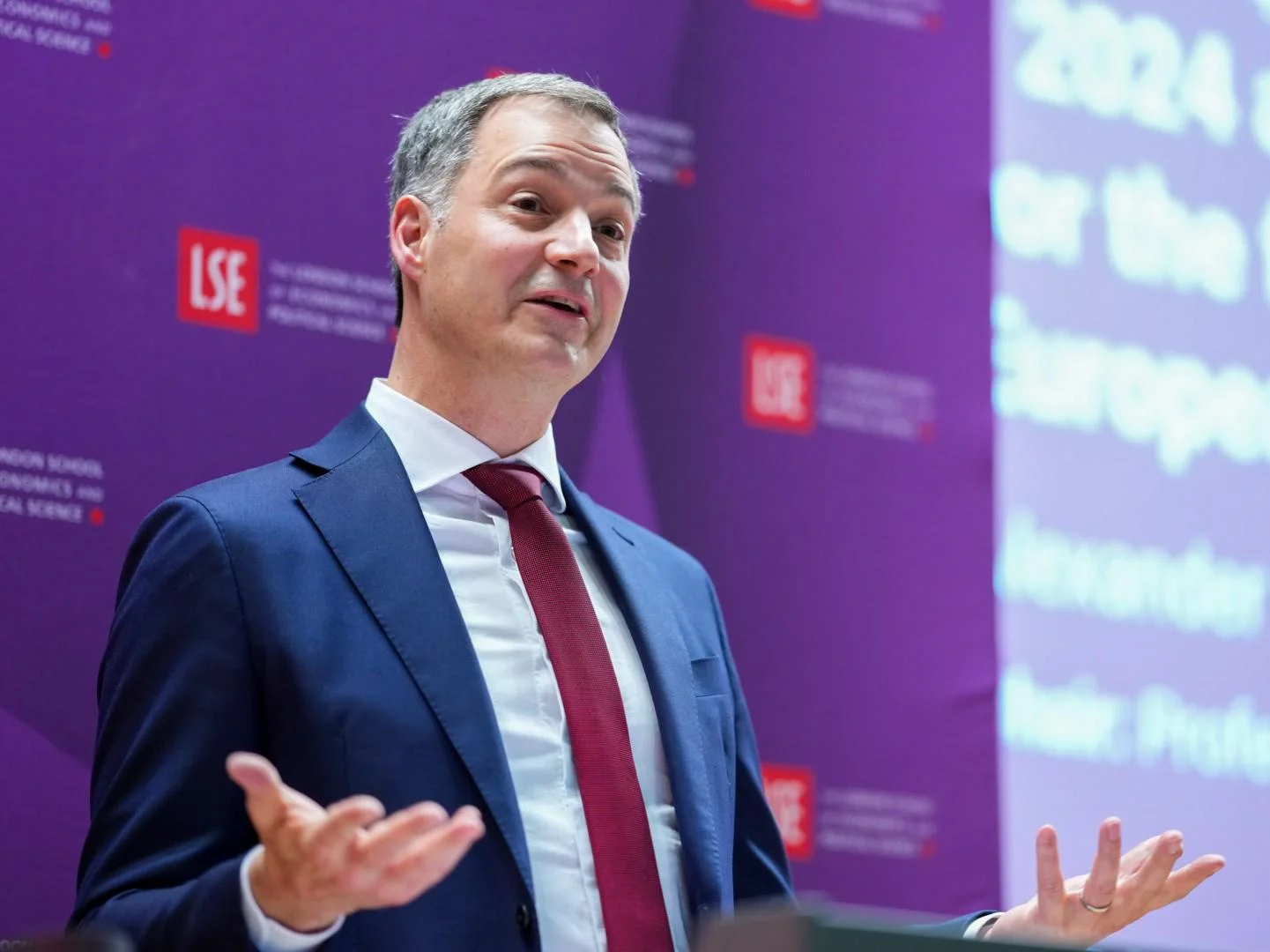We have a past in common, and I am convinced we also have a future in common: Prime Minister of Belgium speaks at LSE

Belgium's Prime Minister, Alexander De Croo, visited LSE last week for an event hosted by the European Institute. As Belgium holds the 2024 European Union Chair, De Croo delivered a speech on the future of the EU, followed by a Q&A led by Chris Anderson, LSE's Ralf Dahrendorf Professor of European Politics and Society.
Throughout his speech, De Croo drew connections between the political and economic challenges facing the EU, outlining three priorities for Belgium's presidency: protect, strengthen, and prepare.
Firstly, De Croo emphasised the increasing importance of the EU’s role in protecting its population, particularly in the context of the ongoing war in Ukraine. He highlighted the unity the EU has displayed in response to the conflict, asserting their commitment to supporting Ukraine.
Secondly, De Croo discussed plans to concentrate on strengthening the EU economy through a focus on new climate policies and funding mechanisms.
Lastly, he said, preparing for the future of the EU involves addressing questions of expansion, finances, and internal decision-making processes. De Croo intends to prioritise these internal aspects as candidate countries continue accession talks.
"We as Europeans, before we get bigger, we need to get better," De Croo said. "The European Union, with all the benefits it offers, needs to get better, needs to become more effective."
De Croo also underscored the significance of international cooperation in addressing global problems, both within and outside the EU. Despite the UK's departure from the EU, De Croo pointed to their similarities, including democratic values and economic challenges, arguing for ongoing collaboration to strengthen both their economies and societies.
"Now that the dust of Brexit has fallen, I'm convinced that we have a lot to offer one another," De Croo said. "There is a channel between us, but we have a past in common, and I'm convinced we also have a future in common."
During the subsequent Q&A session, De Croo fielded questions on the war in Ukraine, the upcoming US election, international organisations, and the rise of populist parties. He also expressed optimism about the EU's future, citing high expectations of the EU from populations across Europe.
"Today, Europe is being pushed forward by the population and not being pulled forward by some visionary leaders. [...] So this is our big assignment: how do we use the push that comes from our population to build a more effective and a better Europe?"
The full event recording is available on LSE's YouTube account: https://www.youtube.com/live/gca_ueP0Hg8?si=4WtbEDXqS8vaY_Ok.